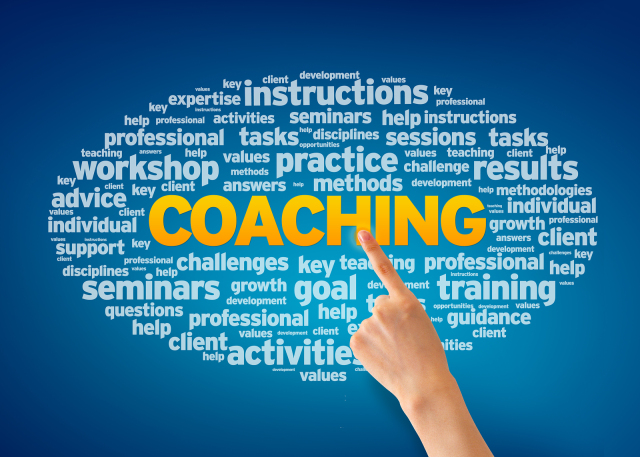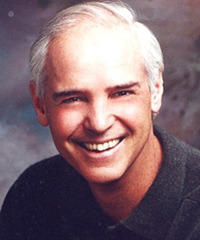
Coaching is a method of achieving set goals. The coach through dialogue helps the coachee (client) to correctly set a goal, to find the best way to achieve the goal and reveal hidden inner potential in a person. The coach does not say how to achieve success, but asks questions through which the client himself finds the solution to his own tasks. The Cambridge dictionary defines the word “coaching” as “the job or activity of providing training for people or helping to prepare them for something”. But the definition isn`t quite right, because coaching is not training or preparation – it helps and supports on the way to achieving the goal.
History of coaching
The progenitor of coaching is considered to be the antiquity schools of philosophy, where knowledge was not transferred directly from the teacher to the student. The teacher asked leading questions, and the student came to the answer by himself.
Modern coaching. Timothy Gallwey and John Whitmore

Timothy Gallwey. It is generally accepted that coaching appeared in the 1970s as a continuation of the ideas of the “Human Potential Movement“. The first fundamental publication about coaching was written by Timothy Gallwey and called “The Inner Game of Tennis“, which was published in 1974. Gallwey described the work principles of sport coach with his wards and how these principles can be transferred from sport to other parts of life.
Read this book in pdf: “The Inner Game of Tennis” by Timothy Gallwey

John Whitmore. Whitmore was a professional racing driver, and after completing his sports career – a successful businessman. In 1971 he met with Gallwey and started to study coaching with him and helped in promoting the principles of the “Inner Game”. In 1979, Whitmore popularized the principles of “Inner Game” in England. In the late 1980s, Whitmore developed the model GROW (Goal, Reality, Options, What). In 1992 he published the book “Coaching for Performance“, which became the main manual for coaching. John Whitmore is the main theorist of modern coaching.
Read this book in pdf: “Coaching for Performance” by John Whitmore
Since the mid-1990s, coaching has evolved into a separate line and the first international organizations have started to appear: the “Association for Coaching“, the “International Coach Federation“. These organizations have developed training standards for coaches.
Do you feel passionate about helping others reach their full potential and starting your own coaching business? If that’s the case, you’ve come to the right place! In addition to explaining the fundamentals of coaching, the article also offers valuable insights on how to start a coaching business. By following the steps outlined here, you can turn your passion for coaching into a successful career and make a meaningful impact on the lives of your clients.
What is coaching
It`s based on 5 principles:
- Everything is alright with people. There are no wrong people;
- In man, there are initial power to achieve the goal;
- All actions are carried out with positive intentions;
- People change all the time and this process is inevitable;
- A person seeks to choose the best option from the opportunities available to him.
Types of coaching
There is no exact division of coaches by the form and type of activity, but there are three established categories, which are common:
- Life coaching;
- Business coaching;
- Sport coaching.
Read more about different types of coaching you can on Wikipedia.
The process of coaching
The interaction between coach and his coachee is called a coach session. At the session, the coach basically listens to the coachee and sometimes asks him questions. The client himself answers these questions and, in the process of finding answers to the questions, he finds solutions to achieve the goal. Usually the effect of such sessions acts in two stages – primary, which is noticeable at once (immediately), and hidden, in the form of general improvement of the quality of client’s life, increasing motivation and self-confidence.
In the realm of the coaching business, the coach-coachee interaction is at the heart of every coaching session. These sessions are designed to facilitate self-discovery and goal achievement.
The coach employs active listening and skillful questioning to guide the coachee towards finding answers and solutions to their challenges. The impact of these sessions typically manifests in two distinct stages – the immediate, noticeable changes and the more subtle, hidden transformations.
Beyond the initial effects, clients often experience a broader enhancement in their overall quality of life, increased motivation, and a boost in self-confidence, making coaching a powerful catalyst for personal and professional growth.
How to become a coach
The main misconception of people who want to become coaches – “for coaching I need to succeed in the field where I want to be a coach.” Success in any field is welcomed. But the task of the coach is not to tell how he achieved success, but to help the client to activate his inner potential, to reveal the hidden capabilities of the person, to help him to achieve his goal.
For coaching, you need to learn, go through a course and get certification.
Embarking on a life coaching course represents a pivotal step toward shaping lives and careers with empathy and insight. It’s an invitation to delve into the realms of human psychology, strategic communication, and motivational practices.
Such courses are thoughtfully structured to cultivate a deep-rooted understanding of how to foster meaningful change in others, equipping you with both the theoretical knowledge and practical skills necessary for effective coaching.
As you progress, you’ll find yourself not only guiding others to their fullest potential but also discovering a richer sense of your own professional purpose and capacity for impact.
But the course and the certificate alone are not enough. To become a good coach, a person must:
- Have developed personal qualities: observation, responsibility, sociability, creativity, cheerfulness, courage, emotional stability, accuracy;
- Not be afraid of public;
- Be easy-going;
- Be erudite and diversified;
- Possess the quality of self-improvement;
- Have an active life position;
- Love to help people and believe in their own business.
Features and differences of coaching
This profession has several distinctive features:
The coach is not required to understand all the rules of the field in which his client is trying to succeed and does not answer the questions directly, but helps the client to find the answers by himself using his own skills.
Similarities and differences compared with psychotherapy
Coaching and psychotherapy share the following similarities: in both cases the client is treated as he is, without illusions and is not subject to general rules and patterns. Creates a comfortable and confidential atmosphere for the client, in which he can fully reveal himself.
Both, coaching and psychotherapy, are aimed at realizing the client’s true motives, values and emotions regarding the current issue.
But, with similar methods, the goals for coaching and psychotherapy are different. The psychotherapist works with the client’s past to improve the situation of today. Psychotherapy raises and helps to overcome stressful moments from the past that affect the present. Psychotherapy is aimed to the past in order to improve the present. While working with the client, the coach helps him to activate his inner potential, to work out the most effective way of achieving the goal. Coaching works from the present to the future.
The coach does not try to cure his client, he considers every one as fully-fledged, healthy and capable.
Similarities and differences with mentoring
What is mentoring you can learn from our article “What is Mentoring?“
Coaching and mentoring are aimed to achieving a similar result – professional or personal growth of the client. But methods for achieving goals differ. Mentor is a person who has achieved success in his field and now helps and shares his experience with the client. Passes skills, helps to get out of difficult situations, gives clues – provides direct assistance to the client. The coach does not give hints directly, but helps the client to find the answers to the burning questions.
Here is a good illustration of how coaching works from Youtube channel “Wellcoaches”: